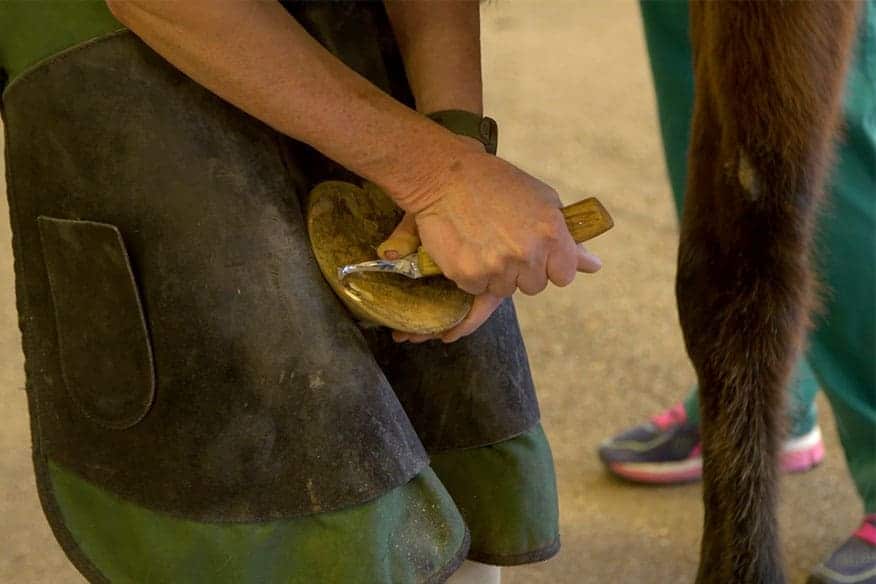
Can I Ride My Post-Laminitic Horse?
Dr. Andrew van Eps gives his advice for returning a previously laminitic horse to movement and exercise slowly.
Prevention and treatment for problems of the equine foot

Dr. Andrew van Eps gives his advice for returning a previously laminitic horse to movement and exercise slowly.

A veterinarian explains the relationship between high insulin and laminitis in horses.

A veterinary podiatrist explains how X rays can be a useful tool for managing horses with chronic laminitis.

These tips can provide an interim solution to dealing with a loose shoe while you wait for the farrier.

Typically, grass has less sugar overnight and in the early morning than during the day.

A veterinarian explains the process of using poultice and wrapping a hoof.

Addressing hoof abscesses early can help horses have the best outcome.

Navicular syndrome, more accurately referred to as podotrochlosis, is a catchall phrase describing chronic forelimb lameness caused by pain stemming from the navicular bone and related structures. Sponsored by Dechra.

Low-starch forage and weight loss can help horses with laminitis regain their foothold.

Researchers assessed laminitis risks in a population of 707 donkeys and found they differ significantly from those of horses and ponies.

Learn about the best trimming and shoeing practices to ensure your horse stays sound while traveling the trails.

Researchers reported thermography showed lower temperatures in the heels and toes of horses wearing egg bar shoes or wedge pads; the findings remain inconclusive.

Mud isn’t the only moisture-related enemy of hoof health—consider dewy pastures and frequent bathing, as well.

Why do some horses wear muzzles, but others don’t? Does your horse need to wear a muzzle year-round? From proper fit to feeding, here’s what you need to know about these weight-loss contraptions.

Researchers, veterinarians, and farriers discuss the barefoot sport horse trend.

Learn what makes managing ponies special—from their critical need for nutritional supervision to their often feisty personalities.
Stay on top of the most recent Horse Health news with
"*" indicates required fields